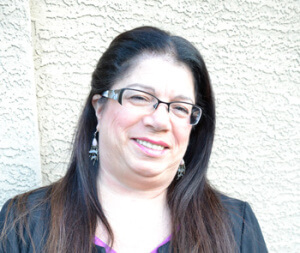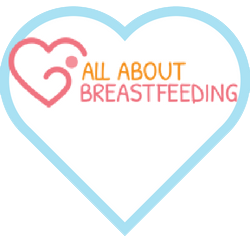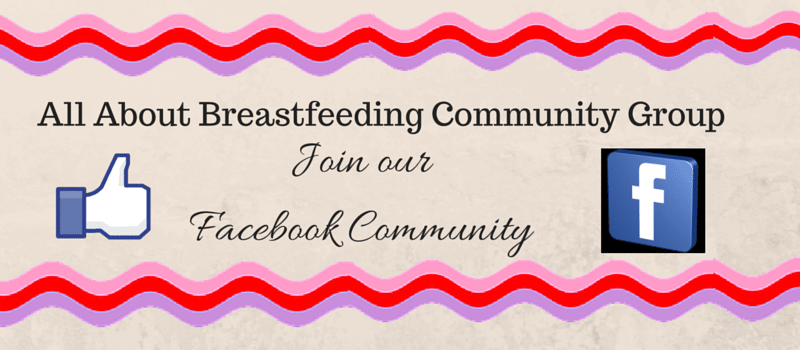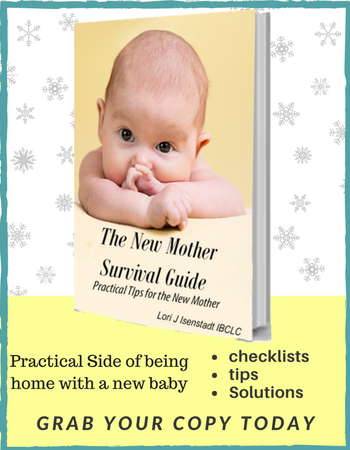Episode 332
I am so glad you are joining us today for the last show of Season 11 where I will continue with the theme of – What do breastfeeding moms worry about. Before we get to that, I wanted to let you know that, I am going to take a break for a few weeks and resume again on Monday, January 14th, 2019. I love the New Year for every single reason except for one – It takes me a while to not stumble when I transition from saying 2018 to 2019. I need to remind myself to go slow and be thoughtful about it. Otherwise, I always think it is exciting to ring in a New Year and look forward to what awaits us.
As we head into the break, I want to remind you that you can keep yourself busy learning all about breastfeeding by going into the archives and downloading all of the previous shows. There are over 330 at this point. In the meantime, continue listening during the break, as I will also be releasing some of the most popular shows during this time period too. Onward to todays show:
As many of you know, I have quite a few favorite sayings when it comes to breastfeeding. One of them this: Breastfeeding is wonderful and amazing. While there are many benefits to breastfeeding, I also want you to know that it is a learned skill. One that takes time, commitment, practice and patience. Whether breastfeeding comes easy to you and you get it down quickly, or you are like most of us and it takes time to find your own groove and feel confident and comfortable with breastfeeding, it is likely that you will have many questions and some concerns.
( below – goes in audio podcast- DO not put into Youtube version)
In the previous X shows I have addressed many of the common worries that moms have when it comes to breastfeeding. On Episode #327 , I talked about medication safety when breastfeeding. Your positive responses to the show continues to let me know that there are many concerns that moms have about this subject. You said that you appreciate the free resource information I gave so you can be empowered to learn the safety of any medication you are taking or considering taking.
On last weeks show, I talked about another worry that moms have. They have a devoted reliance on their pumps and panic if something should happen to separate them from their pump or if their pump breaks and they cannot use it to remove the milk. Go back to Episode #329 because I got you covered. Plus, if you missed that show, you will likely want to check it out after listening to todays show. They all seem to be connected, I know.
Another very common, oh so common worry that moms have about breastfeeding, has to do specifically with the first day or 2 of breastfeeding. When I worked as an IBCLC in a large City Phoenix hospital, I heard this worry on a daily basis. Can you guess the most common worry that I heard new mothers verbalize? What were they telling me? Perhaps this is one that you have thought about or worried about yourself?
About 50% of the rooms I walked into, had moms who told me: I have no milk.
Now, before I go any further, I will acknowledge that there is a very small percentage of mother’s who truly do not have milk for their babies on that first day. There is usually a medical reason for which you would need individualized care so this will not be addressed here. I want to talk about and focus in on every other mother who surely has milk for her babies and just does not know it.
Why doesn’t she know that she has milk for her babies?
There are 2 common reasons. Incredibly enough, the most common reason is:
Noone told her that she began making milk halfway through her pregnancy. It is a crying shame that she did not learn this information because this knowledge can save her. Save her from not only a lot of heartache. It can also save her from agreeing to feed her baby formula, which being that she had decided to breastfeed, is something she had already decided is not something she wanted to do.
While I cannot speak for why she was not told that her amazing breasts were already at work during her pregnancy, making this amazing food, her babies first food, called colostrum, I can say that this is exactly what is happening. I tell the new moms that halfway through their pregnancy, they began producing milk for their babies. And what a beautiful thing to have happened because now they have all the milk their baby needs.
If it were up to me all moms would be congratulated when they have reached that point in their pregnancy when the colostrum begins to be produced. Their caregiver announces this, congratulates them and moms would leave their prenatal appointments singing and dancing. She has just learned that her pregnancy is progressing normally, her baby’s heartbeat is strong, they are both doing well and her lovely breasts have reached the stage where they are beginning to make colostrum .If it were up to me, all moms would be given a flower or a button with a smiley face or a healthy treat, to mark this exciting milestone in their pregnancy.
If this is such a normal part of pregnancy and it happens all the time, why, you ask should we make such a big deal about it? Well, just because it happens all the time, doesn’t make it any less exciting.
We congratulate moms when they conceive and announce their pregnancy.
We congratulate moms when they give birth. These events happen all the time and they are also wonderful milestones which are regularly celebrated.
I think we should also congratulate mom when they reach another milestone, the stage their breasts, this amazing organ, has begun to produce colostrum. If we talked about it more, celebrated it more, the word would get out and all moms would know – Hooray! I have already begun making milk for my precious baby. When my baby is born, he or she will get all the colostrum they need and their frequent feedings will tell my body to keep making more milk to satisfy their needs.
When I am working with a mom prenatally and she doubts this is even happening, I spend a few minutes educating her how the breasts work and make sure she knows that there is milk in them there boobs. I also teach them hand expression.
Before I show them how to hand express, I let them know that it would not be surprising, not at all, if they were not able to express any milk at the moment. The volume of colostrum is ohhhh so low and it takes a lot of minutes hand expressing before you might even see a glistening. Sometimes they might get a little glistening or dripping of milk which always makes them smile. If they ever questioned it before, this is positive proof that they already have milk.
I explain to them about the very low, but normal volume of colostrum, how the hormones during pregnancy keep the colostrum from flowing easily and how these same hormones shift after birth. Now when your breasts have effective stimulation, this opens up the floodgates so when they put their baby to the breast, how easy it is for their baby to get the milk then.
I don’t stop there because I know that some moms struggle after birth. Sometimes they or their baby has a medical issue that prevents them from temporarily breastfeeding. They may need to be separated and their baby cannot breastfeed. I want to prepare you for this possibility. The hand expression that I show moms during our prenatal consult, will come in really handy as this empowers them to remove the milk, if their baby is not up to the job just yet.
I like for moms to know this information ahead of time. When it came time to breastfeed, they already know how the breasts work, that they are already making colostrum and would confidently put their baby to their breast and expect their baby to have a good feeding. If moms don’t have this information, it is easy for them to believe anyone who tells them that they are not making milk for their baby. Particularly when we are postpartum, we tend to be in a very vulnerable state, we are naturally worried about our babies health and therefore, quite susceptible to buying into this poor information.
Let’s talk about the moms who have not even really thought about their milk supply. They just assume the milk will be there for their baby. I like this kind of thinking – they just assume that their body is working as it should. It would be normal to think this say. So, what could happen in the first few days to lead them to change their mind and think they have no milk for their baby?
I am going to walk you through a very common scenario that happens in hospital rooms all over the world.
Let’s meet Tina, who is a 34 year old, first time mom, who just had a vaginal birth about a few hours ago. Tina and her husband Peter, took a breastfeeding class given by the hospital staff. She looked forward to breastfeeding her baby. She was encouraged to breastfeed shortly after birth and while her baby had no interest at the time, Tina did enjoy sitting up in bed holding her carefully swaddled baby in her arms, while family members came in and out of the room to congratulate her and meet the new baby. She had learned in class that breastfeeding should be encouraged within an hour of the birth. She also learned that some babies take several more hours to show an interest in feeding.
Within a few hours, Tina was encouraged to feed her baby again. The nurse showed her a few tricks to help wake her baby up and she tried to latch her on but her baby was too sleepy. Shortly before her nurse left the room, she was told to try and wake her baby up every hour because now the baby was 6 hours old and needed to eat. If her baby would not breastfeed, the nurse said she would come back with a bottle of formula to feed the baby. Just so we know your baby ate and then we can try to breastfeed in 3 hours after that.
Poor Tina, is absolutely exhausted, from the birth and the room full of visitors. She had been up all last night and into the morning when she finally gave birth. It is now early evening and She is now crying partly out of sheer exhaustion and partly out of worry as to why her baby won’t breastfeed. Tina can barely keep her eyes open, but she is determined to keep waking her baby for feedings. She really does not want to give her baby formula, but she knows her baby needs to eat.
Her husband tells her to close her eyes. He will watch the clock and wake the baby up in an hour. Tina says okay, closes her eyes, is so tired, and yet, she is now frustrated because she also feels wired and can’t sleep.
In about an hour or so, the news is great. She reported to her nurse that her baby did wake up and breastfeed. Went to the right side for 10 minutes and the left side for 15 minutes, she proudly reported. Everyone was finally happy that her baby ate and feeling happy and tired, Tina was finally able to sleep for a few hours.
In the early morning, Tina had a visit with her new daytime nurse who worked with her to optimize position and latch. The LC said her baby was latching on great, gave her a few tips, answered some questions and left the room.
What happened next, is also a very common scenario. As the day progressed, Tina’s baby did not seem to settle down after breastfeedings. She was fussy and came to the breast often, was eager to feed, but after an hour or so of breastfeeding, just did not seem satisfied. Tina was feeling very confused and started to tell her husband that she wasn’t sure if she had enough milk for their baby. Her husband, Peter, assured her she had enough, said he would hold the baby for a while, so she could get some sleep. All 3 actually got some good sleep in the afternoon as the baby slept from 1 pm to 6 pm.
Evening came and both Tina and Mark were very much looking forward to being discharged in the morning. They were very excited to finally being able to bring their baby home. At the same time,
Tina became increasingly anxious because her baby seems frustrated with breastfeeding and now her nipples are starting to get sore. Tina is grateful when Her nurse comes in to help her.
Admittedly, she is a bit hesitant to have other people touching her breasts, but she, of course, agrees to the help because she is feeling anxious and does want to figure this out and she told her husband – I am getting use to others looking and touching my breasts.
Together, They work on breastfeeding, and while the nurse was helpful, she also said at one point – I don’t think you have any milk for your baby. She will latch on, but falls asleep pretty quickly. Babies do that when they can’t get the milk. She asks Peter to hold the baby for a few minutes, while she squeezes Tina’s breast. No milk is leaking and she confirms out loud – Your breasts don’t feel like there is any milk and see when I squeeze, there is no milk. I am sure it will come in, in a few days, but for right now, your baby needs formula otherwise she will lose too much weight and you will need to stay another night.
BAM! There you go! I have just given you a run down of what happens in postpartum rooms all over the world. They were so much looking forward to going home and now they might need to stay longer. Exhausted beyond anything she has ever known, with nipples that are starting to feel like sandpaper, worried that her baby will lose too much weight and on top of everything, seeing that she has no milk, Tina and Mark agree to feed their baby formula. What else are good parents suppose to do when their babies need to eat. They are certainly not going to let their baby starve.
They reluctantly formula feed their baby throughout the night and hearing of their difficulty, the LC comes into their room in the early morning hours. Listening to their story, she then asks if she can see their baby latch on. Tina is happy to show her what she has been doing and latches her baby on. Her baby is willing to go to the breast, but is now coming on and off, on and off. Not sure what this behavior is about Tina expresses concern because she is about to be discharged in a few hours, can’t the LC see that she has no milk and now her baby won’t stay latched on.
The LC knows that their is a learning curve with breastfeeding. Many moms need help in the very early days and frequently for the first few days of feedings. Just because moms are shown and helped with position and latch once, twice 3 or 4 times does not mean that they cannot use some more help. Think about any new skill that you are trying to learn. You may need to be shown several times and practice it a bunch of times before it clicks. Breastfeeding is similar. You are learning a new skill.
There are usually adjustments that can be made to help baby achieve a deep latch. Seeing that Tina could use some help and knowing that her nipples are sore, and seeing the tears roll down her eyes as she said she has no milk, The LC did exactly what I would usually do. Asked if she could touch her breasts to show her how to hand express. With moms permission, the LC was pretty hands on and once she provided hand expression in the correct manner, a little bit of milk glistened at the tip of her nipple. With about 3 minutes of hand expression, milk was now dribbling down her breast. Tina was encouraged to let her baby hang out at the breast for a few minutes and just root away and lap up some of the dribbling milk. As Tina began to relax and smile, she took over and copied what the LC was doing by provided proper hand expression technique, she laughed with delight as she watched the milk dribble down her breast. The LC explained that, of course, she has milk. She had milk yesterday and she has milk today. You have to use proper technique, particularly when the volume is a normal low in the first few days, otherwise just squeezing the breast does not work at getting the milk out.
They worked together, the LC helped make adjustments to the latch, was pretty hands on as she demonstrated position and latch technique, and helped her baby achieve a deep latch. Since Tina was leaving in a few hours, this LC had her take her baby on and off the breast a few times, so she could practice latching her baby. She wanted mom to leave the hospital knowing she had milk and feeling comfortable with latching her baby on.
I know that many moms listening to this show will easily be able to relate to this story because I know that many of you have lived this story. You have sat next to me with tears in your eyes, telling me your story. It is easy for me to believe your stories, because this is what happened on a daily basis when I worked in the hospital and my peers who work in hospitals continue to tell me these stories on a regular basis.
Other moms will say this is crazy. That never happened to them. And I believe them. Lots of moms have no problems with breastfeeding. I’ve met you, I’ve worked with you and I have seen the beauty of a baby latching on all on their own. Truth be told, You are the mom that we are happy for and also kinda sorta jealous of. You and your baby got it going on from the very beginning. – with little to no help from anyone. For other moms who had early struggles, You had the right kind of care, from others who understand how the breasts make milk, they understand how to properly express milk and they work hard to help you with proper position and latch and when you have a rough patch, they do all they can to build your confidence, show you that you definitely have milk. If problems persist and your baby is struggling, they get you hand expressing, feeding your baby your milk and only IF you truly are not making milk for your baby, do they begin talking about donor milk or formula, at least temporarily.
Unfortunately though, for some moms – Other people who you are surrounded by after birth, just don’t know a whole lot about breastfeeding. They are not educated in how this whole breastfeeding thing works and they can easily send you on the wrong path – especially when they tell you that you have no milk for your baby, without a complete and thorough evaluation. This would include Your health history, breast and nipple anatomy, baby’s health and oral anatomy, as well as spend significant time helping you with breastfeeding and providing proper hand expression technique if needed.
Moral of my story: Do not let anyone tell you or make you think you do not have milk for your baby, so early on and without the correct evaluation or a known medical reason for this being the case.
Pregnant moms, if you are halfway through your pregnancy, you are already making milk for your baby. Very small volumes of lovely colostrum. Listen to the All About Breastfeeding show, Episode # 331 where I talk about hand expression and give you info on videos to teach you how to hand express. Put the power in your own hands and do not leave it up to anyone else to dare and tell you that you have no milk. If you are struggling with breastfeeding in the early day or two, get expert help. If you are like the majority of new mothers, your struggles have less to do with the volume of milk you have and more to do with your baby being latched on well enough to be able to get the milk. If you are in the very small percentile of moms who do have a problem with their supply, professional help with an IBCLC is warranted. Parents are often surprised at how helpful we can be.
Over the years, I have visited with countless number of moms who were told they have no milk and once I do my “show and tell” as I like to call it, moms go from thinking they have no milk, to celebrating all this lovely colostrum spilling out of their breasts.
Keep this in podcast, but take out in video.
As with all the other worries that we talked about in this Season, I hope I have given you enough information so that you can delete the worry of ” not having any milk for your baby, off of your worry list.
Lori J. Isenstadt, IBCLC
 Lori Jill Isenstadt, IBCLC is a huge breastfeeding supporter. She has spent much of her adult life working in the maternal health field. Once she became turned on to birth and became a childbirth educator, there was no stopping her love of working with families during their childbearing years. Lori became a Birth doula and a Postpartum doula and soon became a lactation consultant. She has been helping moms and babies with breastfeeding for over 25 years. Lori founded her private practice, All About Breastfeeding where she meets with moms one on one to help solve their breastfeeding challenges. She is an international speaker, book author and the host of the popular itunes podcast, All About Breastfeeding, the place where the girls hang out. You can reach Lori by email at: [email protected] or contact her via her website: allaboutbreastfeeding.biz/contact
Lori Jill Isenstadt, IBCLC is a huge breastfeeding supporter. She has spent much of her adult life working in the maternal health field. Once she became turned on to birth and became a childbirth educator, there was no stopping her love of working with families during their childbearing years. Lori became a Birth doula and a Postpartum doula and soon became a lactation consultant. She has been helping moms and babies with breastfeeding for over 25 years. Lori founded her private practice, All About Breastfeeding where she meets with moms one on one to help solve their breastfeeding challenges. She is an international speaker, book author and the host of the popular itunes podcast, All About Breastfeeding, the place where the girls hang out. You can reach Lori by email at: [email protected] or contact her via her website: allaboutbreastfeeding.biz/contact

Listen Here
Submit a comment
your email address will not be published







